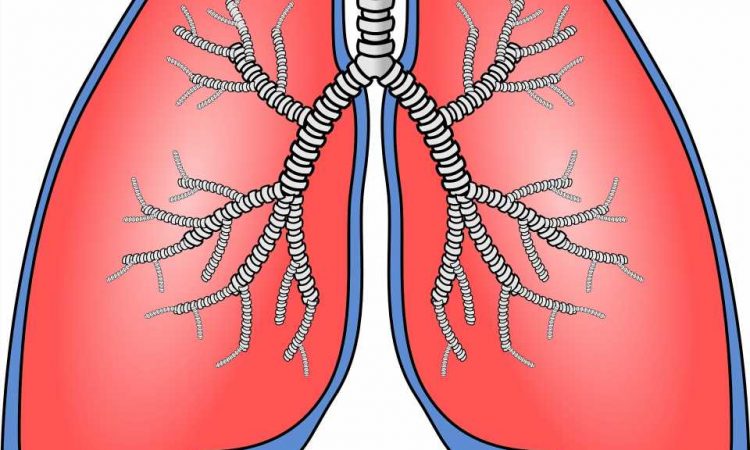
A study conducted under the Lung Cancer Master Protocol (Lung-MAP) found that patients with advanced non-small cell lung cancer whose cancer had progressed on previous immunotherapy lived significantly longer when treated with a combination of ramucirumab (Cyramza) plus pembrolizumab (Keytruda) than when treated with one of the current standard therapies for this type of cancer. The hazard ratio (with 80 percent confidence interval) for overall survival (OS) time for patients on the investigational arm versus the standard of care arm was 0.69 (0.51-0.92). Median OS times on the two arms were 14.5 and 11.6 months, respectively.
Results are being presented June 3 at the American Society of Clinical Oncology (ASCO) 2022 annual meeting in Chicago and are simultaneously being published in the Journal of Clinical Oncology.
The study, known as S1800A, was run as part of Lung-MAP, the first lung cancer precision medicine trial supported by the National Cancer Institute (NCI), part of the National Institutes of Health (NIH), and was conducted within the NCI’s National Clinical Trials Network (NCTN) and the NCI Community Oncology Research Program (NCORP).
The S1800A principal investigator is Karen Reckamp, MD, MS, director of the Division of Medical Oncology and associate director of clinical research at Cedars-Sinai Medical Center, Los Angeles. Dr. Reckamp will present the trial results at the ASCO meeting.
“This is the first trial to show a survival benefit with ICI and VEGFR inhibition for patients with advanced lung cancer who have experienced tumor progression on prior ICI,” Reckamp said.
Pembrolizumab is one of a class of immunotherapy drugs known as immune checkpoint inhibitors (ICIs), and ramucirumab is a vascular endothelial growth factor receptor-2 (VEGFR-2) inhibitor, a class of drugs that block an enzyme needed to form blood vessels.
The randomized phase 2 S1800A study enrolled 136 eligible patients with stage IV or recurrent non-small cell lung cancer. These patients had been previously treated with ICIs. In all cases, patients’ tumors eventually became resistant to these drugs and grew or spread before the patient enrolled in the S1800A trial.
The trial accrued rapidly and with a diverse population, in large part because of the robust outreach of the Lung-MAP master screening protocol. Roy S. Herbst, MD, Ph.D., deputy director of Yale Cancer Center, Lung-MAP founding and principal investigator, and senior author on the paper commented, “The unique nature of the public–private partnership of Lung-MAP, supported by the expansive and diverse nature of the NCI’s NCTN and NCORP, allowed us to bring these new therapies to patients with advanced lung cancer nationwide at no cost to patients—an important improvement in patient access.”
Overall survival was the trial’s primary endpoint. Secondary endpoints included progression-free survival time (PFS) and objective response rate (ORR). The researchers found no significant difference between the arms in PFS (hazard ratio [80 percent confidence interval]: 0.86 [0.66-1.14]; medians: 4.5 months on the ramucirumab plus pembrolizumab arm vs. 5.2 months on the standard of care arm) or in ORR (22 percent vs. 28 percent).
Grade 3 or higher adverse events (side effects) related to the treatment were recorded in 42 percent of the patients on the ramucirumab plus pembrolizumab arm and in 60 percent of patients on the standard of care arm.
Treatment on the trial’s control arm was chosen by the physician and patient from among a set of four standard chemotherapy options: docetaxel plus ramucirumab, docetaxel alone, gemcitabine, or pemetrexed. Approximately two-thirds of patients on standard therapy received docetaxel and ramucirumab as the most active therapy approved in this setting.
The researchers note that S1800A’s relatively small sample size means the trial’s results cannot be seen as definitive, and the combination should be studied in a larger trial.
Source: Read Full Article
